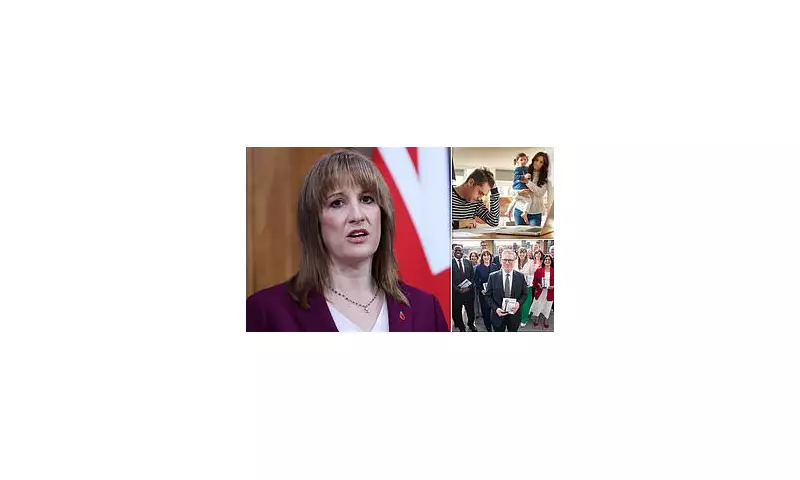
Chancellor Rachel Reeves is facing intense criticism as the Conservative Party warns that her impending extension of a 'stealth tax' will leave countless working families more than £1,000 worse off. The move, which involves freezing income tax thresholds for an additional two years, represents a dramatic U-turn on a key Labour manifesto promise.
The Financial Impact on Households
According to a detailed analysis highlighted by the Tories, the Chancellor's strategy will have a severe financial impact. Higher-earning couples could face an extra £1,300 in combined tax and National Insurance payments due to the prolonged freeze. The policy's ripple effect means that individuals newly pushed into the higher 40% tax bracket will be burdened with an additional £900 every year, even if the freeze is eventually lifted.
This phenomenon, known as 'fiscal drag', is set to engulf millions more workers. Professions that form the backbone of public services, including nursing, policing, and teaching, will find a greater portion of their income subject to the higher rate of tax. The Institute for Fiscal Studies think-tank has projected that up to ten million Britons could be paying the 40p tax rate if the thresholds are frozen again.
Broken Promises and Political Fallout
The decision marks a stark reversal from Chancellor Reeves' previous commitments. In her Budget speech last year, she explicitly vowed not to extend this specific 'stealth tax', acknowledging that it would constitute a breach of Labour's manifesto and harm working people. Shadow Chancellor Sir Mel Stride condemned the move, stating, "Rachel Reeves could not have been clearer... Now Starmer and Reeves refuse to deny they are planning to break that promise."
He demanded accountability, adding, "If she does so yet again, she has to go. Labour need to show some backbone and control spending, not keep raising taxes." The political heat is intensifying as the policy is seen as a key measure to fill a £20 billion black hole in the public finances, potentially raising £8 billion by 2030.
Wider Consequences and Additional Measures
The repercussions of the freeze extend beyond those in employment. The Conservatives' analysis indicates that even retired individuals could lose around £150 over two years. This is because the full state pension is projected to exceed the income tax personal allowance from 2027 onwards, drawing pensioners into the tax net.
Originally introduced by Rishi Sunak in 2021, the freeze was already on track to raise £42 billion by 2027-28. Reeves is now expected to abandon larger, more controversial tax hikes in favour of a 'smorgasbord' of smaller policies. Among these reported measures is a new 'milkshake tax', which would end the current exemption for dairy-based beverages from the existing sugar tax, a levy initially designed to combat obesity.
A Treasury spokesman declined to comment on the speculation, stating only that "The Chancellor will deliver a Budget that takes the fair choices to build strong foundations to secure Britain’s future." With the Budget announcement imminent, millions of UK households are anxiously awaiting the final details of a plan that will directly hit their pockets.





